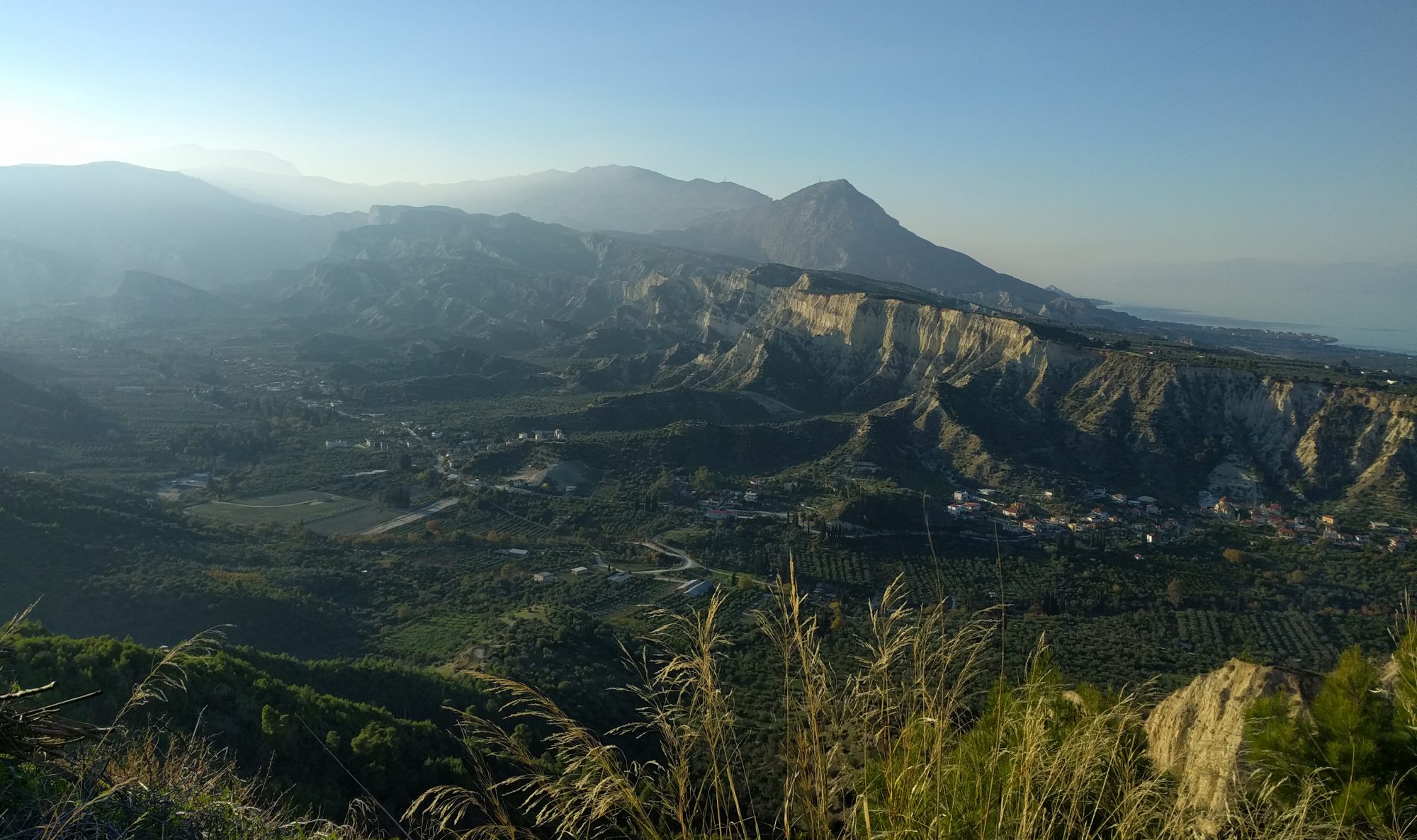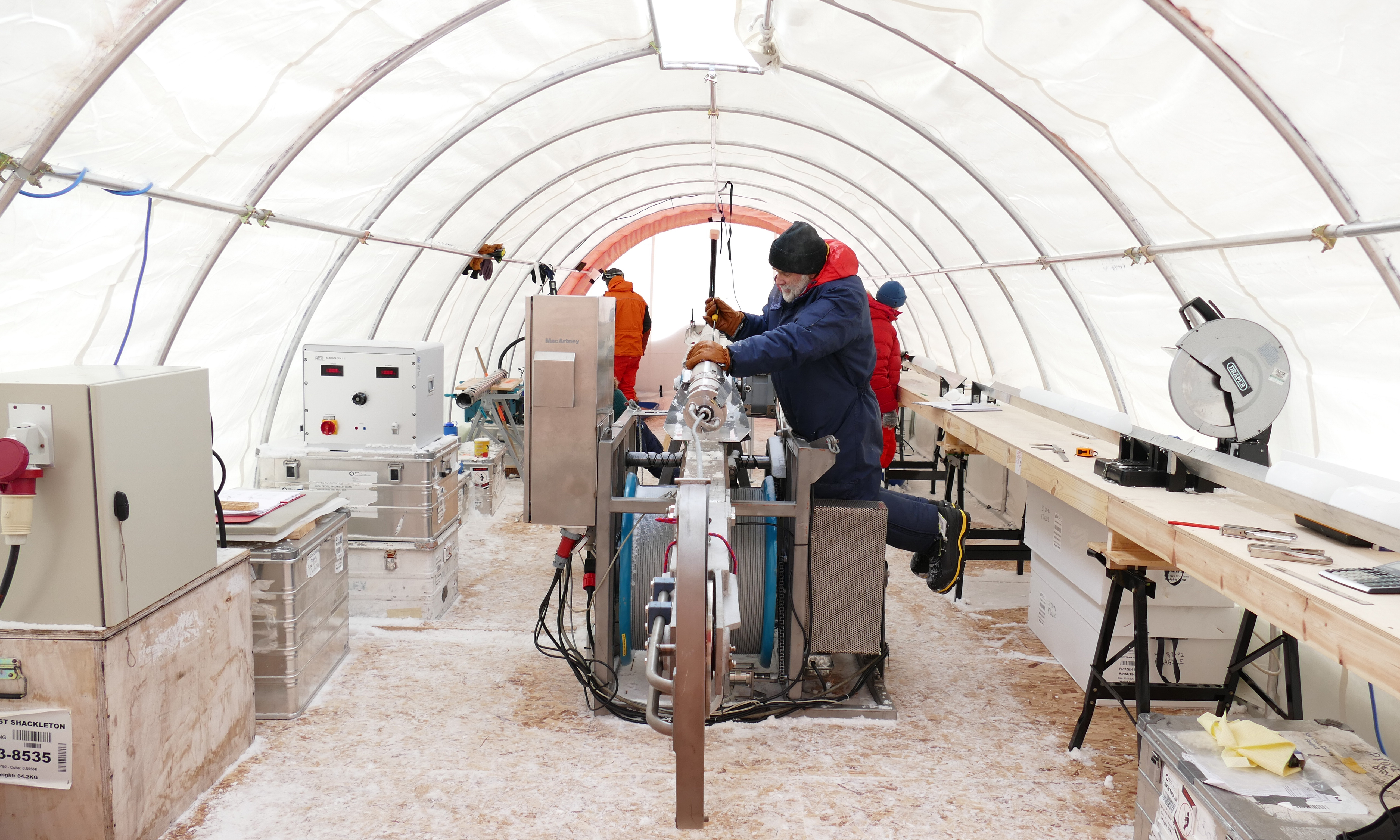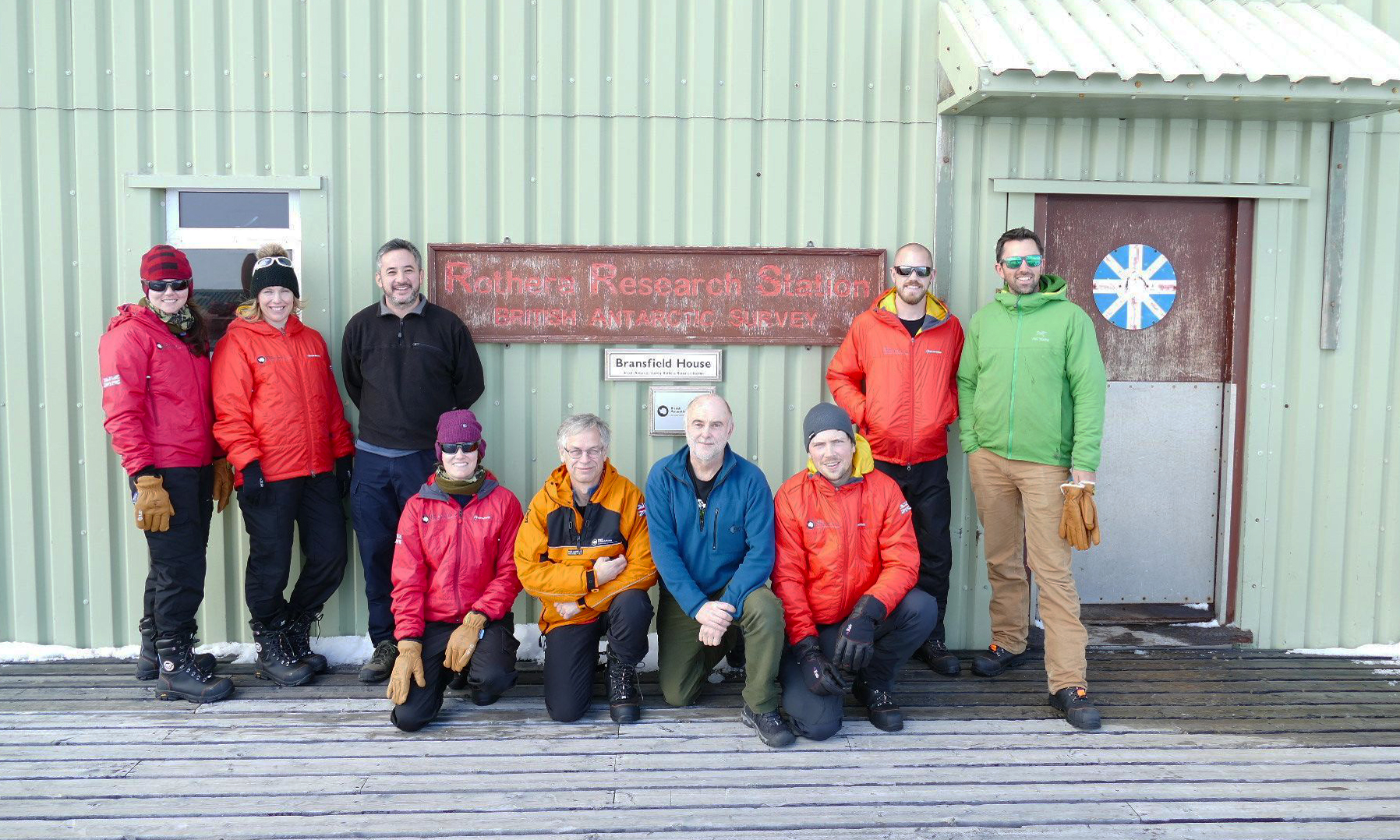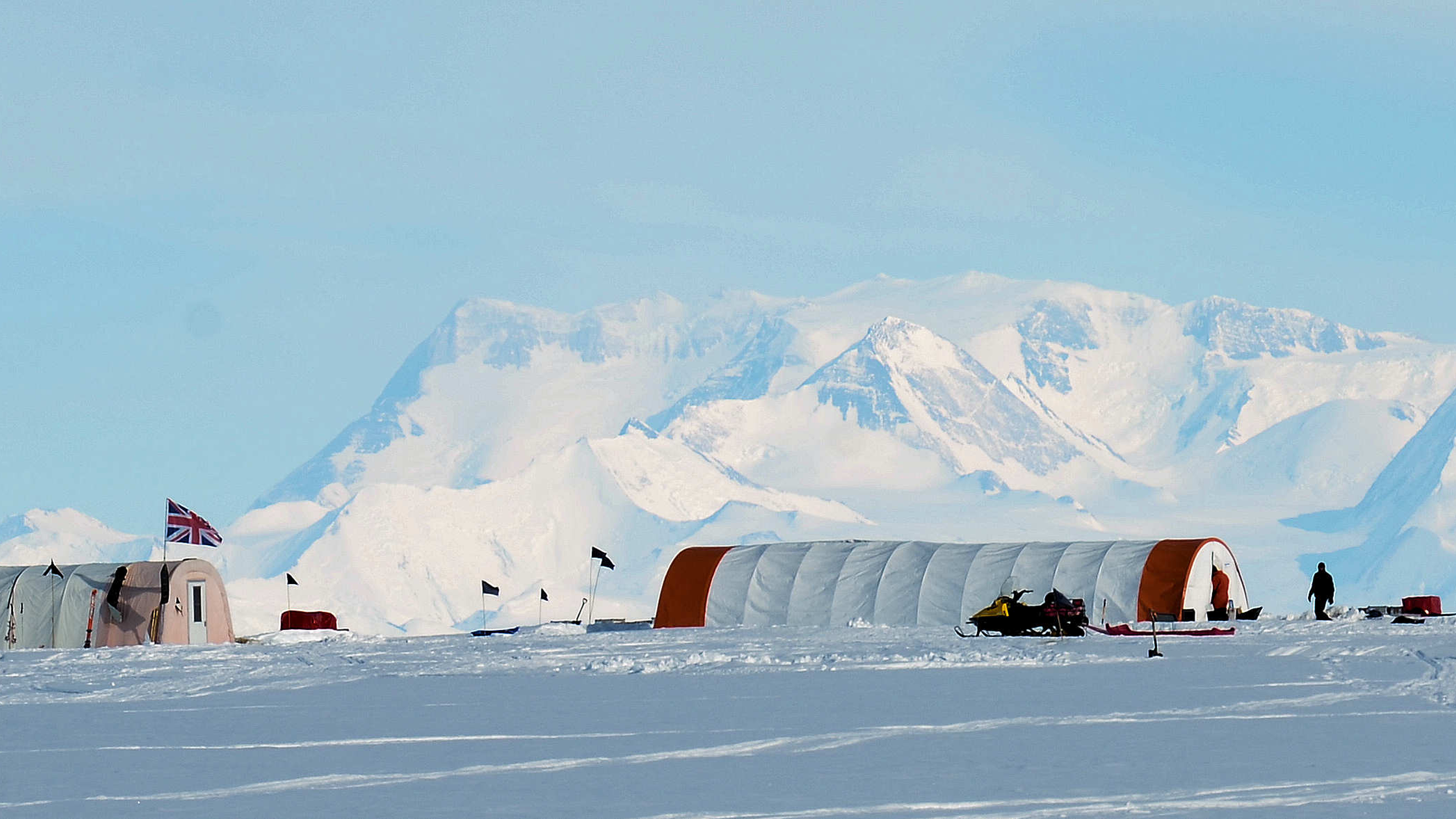In my last blog I wrote about all the expertise needed to get us into the field. Well finally eight of us, including me, have reached Skytrain Ice Rise, and are experiencing all the steps needed before we can drill an ice core.
Continue reading “WACSWAIN Drill Log: making camp in the Antarctic”WACSWAIN Drill Log: preparing for fieldwork
Most of us assume that the key skills for our research are academic ones. But preparing for our field season in Antarctica for the WACSWAIN project, it’s obvious just how many other skills and attributes are needed, and how we rely on our non-academic support staff.
Nine of us are now waiting at Rothera research station on the Antarctic Peninsula, ready to fly into the field – four from Cambridge’s Department of Earth Sciences, and five from the British Antarctic Survey (BAS).
Continue reading “WACSWAIN Drill Log: preparing for fieldwork”Research on ice – introducing the WACSWAIN project
Four Cambridge Earth Scientists are about to travel to Antarctica for three months, where they will turn to the past to assess the risks to the future of the West Antarctic Ice Sheet. Project leader Professor Eric Wolff explains the aims and importance of their research.
Many large cities, and all those who get their living from the sea, live close to sea level. As a result, even small rises in sea level expose millions of people to extra risk. Sea level is currently rising due to a combination of melting glaciers, thermal expansion of the warming ocean, and contributions from large ice sheets.
Continue reading “Research on ice – introducing the WACSWAIN project”




